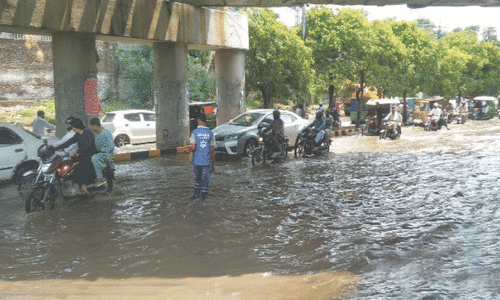LAHORE: Pakistan has the highest rate of breast cancer in Asia and around 40,000 women lose their lives every year in the country due to the disease. Its major risk factors here include cousin marriages, fast food, and Vitamin D deficiency and a majority of cases are diagnosed late because of a lack of awareness and cultural taboos that drive the women to keep the disease a secret.
This was stated by the medical experts at a breast cancer awareness symposium organised by the Medical Education Department of the University of Health Sciences (UHS) on Thursday.
The event was presided over by Vice Chancellor Prof Ahsan Waheed Rathore. All the UHS students were given the status of breast cancer awareness ambassadors to create awareness about the disease in their areas and among their relatives.
Addressing the symposium, the experts said on average every two minutes a woman was being diagnosed with breast cancer in the world. They said the breast cancer mortality rate was seven percent. Terming the family support the most important in treatment of cancer patients, they called for formation of patient support groups in the country where they could benefit from each other’s experiences.
Prof Ahsan Waheed Rathore said: “We have to teach our girls that the disease should not be concealed”.
Continental Medical College Lahore Principal Professor Ayesha Shaukat said that in Pakistan, 80pc of the patients with breast cancer had stage III or IV disease at the time of the first presentation. She said the factors that increased the breast cancer risk included gender, age and genes.
Prof Ayesha added that most women could survive breast cancer if diagnosed and treated on time.
The former head of UHS Human Genetics Department, Prof Shagufta Khaliq, said when she suffered from the disease, she found out that the treatment was very expensive. She suggested that breast cancer treatment should be free for women.
UHS Assistant Professor Dr Hina Jawaid said there were mobile phone apps for breast self-examination that could be of great help to women and health experts.
Surgeon Dr Syeda Husan-e-Zahra, Dr Saima Chaudhry, Dr Tania Shakoori and Director Medical Education Dr Khalid Rahim also spoke.
Published in Dawn, October 28th, 2022












































Dear visitor, the comments section is undergoing an overhaul and will return soon.